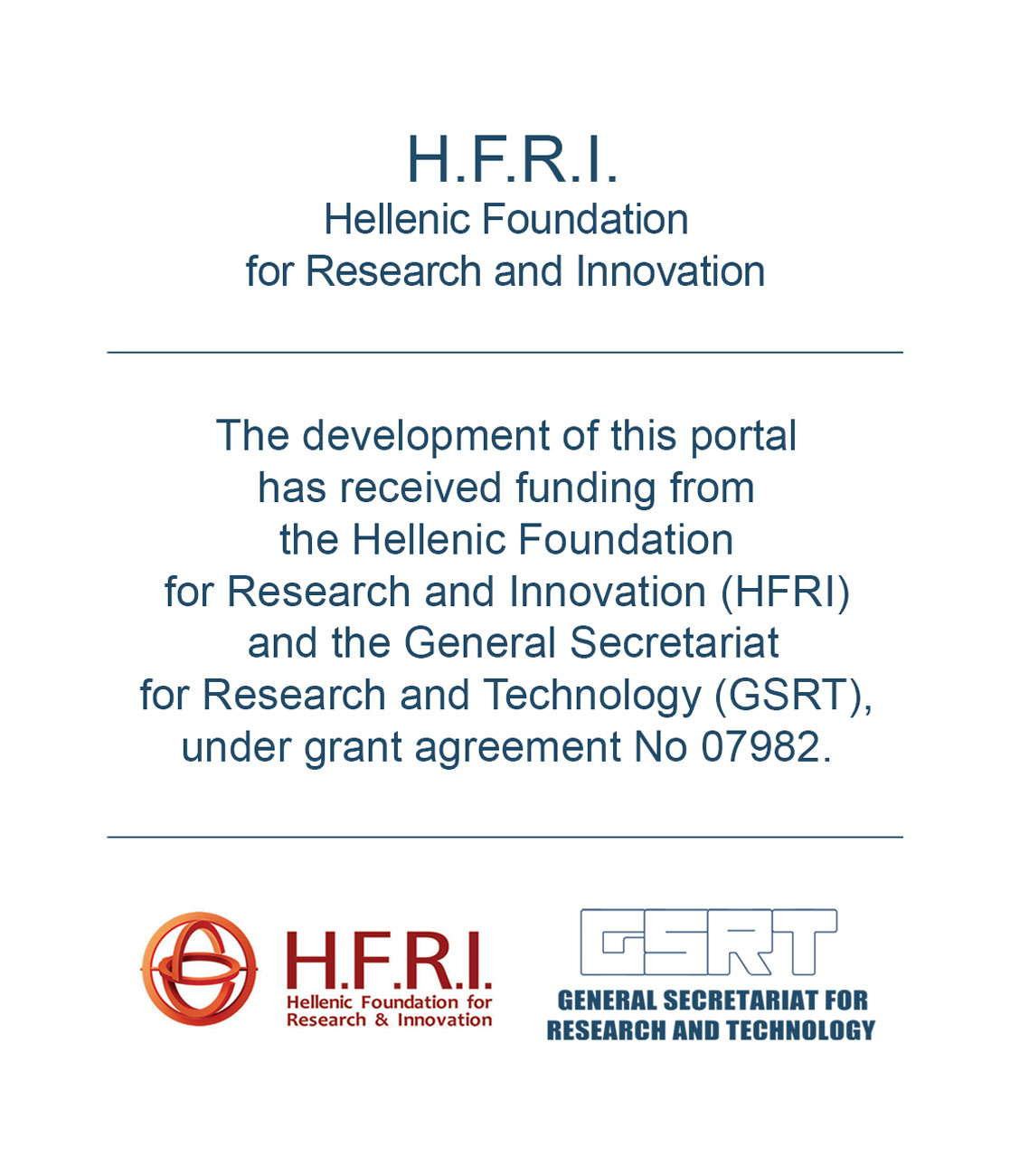Digital Methods and Tools in Folklore, Social Anthropology and Oral History
Humanities and Social Sciences Focus Groups
November 30, 2022
Library of the Academy of Athens
Organiser: Academy of Athens

On Wednesday, November 30, 2022, the Academy of Athens held a meeting entitled “Digital methods and tools in Folklore, Social Anthropology and Oral History” organised in the framework of the project “The emerging landscape of digital work in the Humanities to discuss practices of digital work in the humanities”.
This hybrid meeting took place in the Library of the Academy of Athens. The participants were the following:
- Paris Potiropoulos, Research Center of Greek Folklore, Academy of Athens, scientific coordinator for DARIAH-GR/DYAS
- Giorgos Katsadoros, Department of Primary Education, University of the Aegean
- Yannis Karachristos, Research Center of Greek Folklore, Academy of Athens
- Pothiti Handzaroula, Department of Social Anthropology and History, University of the Aegean
- Petros Petridis, Department of Social Anthropology, Panteion University
- Zoe Margari, Research Center of Greek Folklore, Academy of Athens
- Alexandros Kapaniaris, Department of History and Ethnology, Democritus University of Thrace
- Vassilios Poulopoulos, Department of Digital Systems, University of Peloponnese
The discussion was coordinated by Giorgos Tzedopoulos, historian and member of the Academy of Athens DYAS team.
The speakers dealt with questions related to digital research methods, new research fields enabled by digitality, the compilation and archiving of digital records, the exploitation of digital records produced by the actors, issues of sharing and rights of digital records, and finally, the challenges posed by the digital condition on the specific scientific branches in terms of their theoretical and methodological composition, but also their social/educational footprint. The speakers substantiated their approaches with reference to specific examples from their research experience and activity. Therefore, the meeting highlighted both the importance for researchers to be involved in research projects that include a digital component, as well as the wide thematic scope of these research projects.
In his introductory statement, Paris Potiropoulos presented the goal of the meeting in the context of the project “The emerging landscape of digital work in the Humanities within the framework of the European DARIAH and CLARIN infrastructures”.
Next, Yiannis Karachristos referred to the issue of the digital transformation of large archival collections and its various aspects (documentation, metadata, interoperability, use of structured vocabularies), through the experience of the Archive of the Center of Greek Folklore of the Academy of Athens.
Pothiti Handzaroula spoke about the researcher’s approach to archived oral testimonies regarding the Holocaust, about the inclusion of the testimony and the witness/subject in the narrative aspect of the archival collection, and about the need to make the formation of the archive itself an object of research.
Petros Petridis presented a researcher’s approach to machinima, the videos that online game players create by extracting audiovisual material from the game worlds themselves and by forming new communities and subjectivities. He thus opened the discussion toward the direction of “digital ethnography”.
Zoi Margari spoke about specific digitization and archiving projects for the recording of ethnomuseological data that involve image, sound and movement (dance) simultaneously, and highlighted the frequent problems that arise in terms of ensuring the sustainability of digital research infrastructures.
Giorgos Katsadoros referred to research on internet memes and highlighted how digital ethnography demonstrates the resilience and the transformations of popular culture in the internet environment.
Alexandros Kapaniaris presented an overview of developments in digital folklore, from the organization of digital records in repositories, cultural mapping and virtual museums to digital storytelling and its application in teaching.
Finally, Vassilis Poulopoulos referred to the importance of interoperability for the communication and interconnection of research projects and emphasized the dangers posed by the marginalization of humanities studies as fields of structured knowledge and by the loss of depth and context in the understanding of time and space.
After the presentations, the coordinator Giorgos Tsedopoulos summarized the main points of the presentations and asked the speakers two questions about the use of digital methods of organizing the material and the use or creation of structured vocabularies and thesauri in documentation and metadata. The speakers took the floor in turn and referred to the effort to respond to the demand for interoperability and discoverability, to the concept of “open archive” and to the utilization of taxonomies “from below” (folksonomies).
The discussion opened with the participation of members of the audience and interventions by the members of the Academy of Athens DYAS team Helen Katsiadakis and Eleni Goulis and of the Institute of Language and Speech Processing Maria Gavriilidou and Georgia Bakayiannis. By the end, the meeting had covered the entire thematic range of the speakers’ presentations and the research questions of the project.
